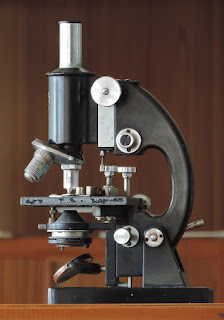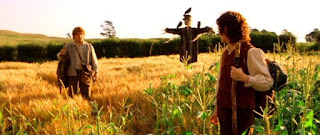I first dipped my toe into life as a Soutie when I was 18. I was waiting for my brothers to finish University before my turn came, and checking out the world seemed like a good plan. I had never left South Africa. I saved up for the plane ticket, and headed across the salty pond.
It was my first taste of really being stretched away from home. I got my first email account (teebee@postmaster.co.uk). I had heard of this thing from our Maths teacher 4 years earlier. She told us you could send letters electronically to America. Somewhere in a memory box at my Mother's place, I still have letters my eldest brother had sent me when he ventured off to University. That was just to Johannesburg, but at that time crossing the Vaal river was like crossing a border. Even if that border was just an accent, and a different dress sense. It was now my turn to send letters, but I could do them electronically. When my turn in the Computer Room came. I printed the letters out as they came.
I was able to phone home, but it cost around 50p a minute, which meant a two-minute call cost as much as a movie back home on half-price Tuesdays. "International Calls" can break the bank. No cell phones, I was working at a school and would go into the Headmaster's office to call home now and then. Still a man-boy, despite looking after the boarding kids, being in that office was dangerous as I knew where the stash of Tuck chocolates was.
I had the company of the staff and kids, but there was one 9 week stretch where I decided to "Super Save". It was school holidays, but I stuck around and got a job at a local hotel as a waiter and a night porter. That was the time I felt farthest from home. No Facebook, or WhatsApp, or budget for regular phone calls. I am more fond of a cuddle than your average bear, and I don't think I touched another human being even to shake their hand for more than two months.
I loved my year and a half as a Gap Student (Schools in the UK often take on teaching assistants who are in between school and university.) I finished it off with a whirlwind Camping tour around Europe. It was intents. I was very ready to come home at the end though. When I did, going to Cape Town for university didn't feel quite as far from Durban (1600km). I had saved up enough while in the UK to buy an electronic keyboard, and my first trip to University was on a train so I could carry the thing. From my time on Mud Island, I was used to trains.

When I eventually came back to the UK to try out working in a Global City (this time in 2008), the experience had changed. Social Media, cell phones, and a bigger South African community meant the world felt dramatically smaller. I still feel stretched from home, but it feels more like the difference between Johannesburg, Durban and Cape Town from growing up than the actual kilometers.
"Home" is also more difficult to define. A great childhood friend of mine who lived quite close by recently moved to Texas. My family and friends live all over the place. I no longer have the ability to pick a place, and go there without feeling stretched. Instead, I have to juggle Local and Global. As Taiye Selasi says, 'Don't ask me where I am from, ask where I am a local". I am local to Jozi, Durbs, Slaapstad, London and the Shire.
"One more step," said Sam, "and that's the farthest
I've ever been from the green meadows of my home"
We live locally. We get our cuddles locally. In a Global World. We can live multi-locally. It requires the time and effort to build up different understandings. Learn different rules. Make local friends. Get better at adjusting, accommodating, managing expectations, reducing judgments, and opening eyes and ears.
Community Building across locations provides challenges. We have new tools to make it easier, but the idea of home is evolving. It stretches us, but we can't let it tear us. As Frodo said,'Oh Sam! I know... but we must continue now".





















